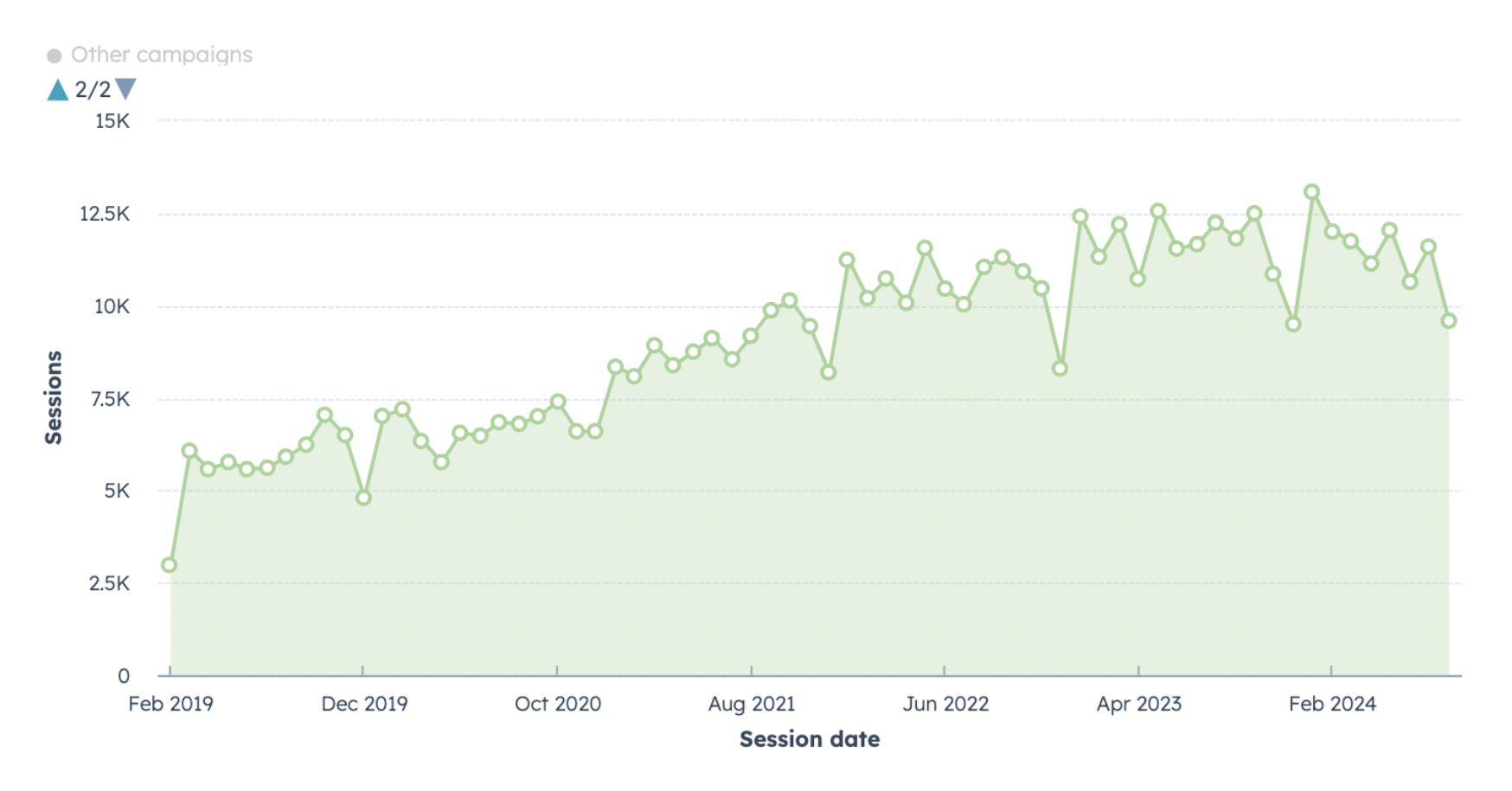Sustainable Marketing: The Triple Bottom Line of People, Planet, and Profit
In a world where consumers are increasingly aware of their choices, sustainable marketing has evolved from being a trend to a crucial strategy. Today, it's not enough for companies to focus solely on profit; they must also consider their impact on people and the planet. This shift in thinking aligns perfectly with my own journey toward sustainability, which began with my MBA and deepened as I explored the powerful intersection between business strategy and environmental stewardship.
A Personal Journey: From MBA in Sustainability to Teaching Sustainable Marketing
When I pursued my MBA in sustainability, I was captivated by the concept of balancing the demands of business with the pressing need to care for our planet. This study fueled my desire to show business leaders that sustainability isn’t a constraint but an opportunity—a way to innovate and foster deep, meaningful connections with their audiences. Through teaching, I found a way to connect theory with practice, demonstrating how sustainable marketing principles—especially the 3 Ps of People, Planet, and Profit—are essential to building a business that thrives over time.
If you’re looking for a marketing strategy that does good and feels good, sustainable marketing is your answer.
Let me show you why. In this article, we’ll explore:
- What sustainable marketing really means.
- The concept of the triple bottom line: People, Planet, and Profit.
- The importance of authenticity and building trust.
- How AI and technology fit into sustainable practices.
- The connection between sustainable marketing and content ecosystems.
What Is Sustainable Marketing?
At its core, sustainable marketing is about doing business in a way that supports long-term value for people, the planet, and profit. It’s not about quick wins or short-term profits, but about building a system where all parts work together harmoniously—much like a healthy ecosystem.
While traditional marketing often focuses solely on profit, sustainable marketing seeks to balance profitability with ethical practices that benefit society and the environment. This means creating strategies that minimize harm, reduce waste, and foster authentic, long-lasting relationships with your audience.
The Prairie Strip Analogy: A Blueprint for Sustainable Marketing
An analogy that resonates with me is the concept of prairie strips, as explored in the New York Times article, "Hidden in Midwestern Cornfields, Tiny Edens Bloom." Prairie strips are narrow bands of native plants woven through vast fields of corn. They protect soil, reduce erosion, and foster biodiversity—ultimately making the land more fertile and resilient. Just as prairie strips rejuvenate the land, sustainable marketing rejuvenates business by building a rich, interconnected ecosystem.
By prioritizing people, operating in harmony with the environment, and fostering a steady, responsible path to profit, businesses can build a resilient, flourishing ecosystem around their brand. This may take more care and time to develop, but, like prairie strips that transform the land over time, sustainable marketing creates lasting value.
The Triple Bottom Line: People, Planet, and Profit
At the heart of sustainable marketing are the 3 Ps—People, Planet, and Profit. Here’s how they guide sustainable business strategies:
- People: Sustainable marketing is centered on people. It’s about understanding your audience and creating products and services that meet consumer needs and contribute positively to society. By prioritizing people, companies foster loyalty and build communities that support long-term growth.
- Planet: Environmental responsibility isn’t just a checkbox; it’s vital for businesses aiming to make a lasting impact. This could mean reducing carbon footprints, using eco-friendly packaging, or creating content with digital tools and AI to minimize waste. When businesses prioritize the planet, they signal a commitment to protecting and regenerating resources, ensuring that growth does not come at the planet's expense.
- Profit: Focusing on people and the planet doesn’t mean compromising profit. Sustainable marketing generates long-term profitability by aligning purpose with financial success. By cultivating trust, reducing costs, and reinforcing brand values, companies can achieve sustainable growth that benefits all stakeholders.
Sustainable content is a key part of this approach—content that lasts, educates, and can be repurposed across platforms. For more on how to build a sustainable content ecosystem, visit our guide on Search Everywhere Optimization and Content Ecosystems.
Building Trust and Authenticity Through Sustainable Marketing
Another core element of sustainable marketing is authenticity. It’s not about putting a green label on a product and calling it “eco-friendly.” It’s about transparency, delivering on promises, and inviting consumers into a shared mission of making the world a better place. In my experience, authentic marketing requires consistent, honest storytelling that aligns with company values.
Authenticity builds trust, and trust builds enduring relationships. Sustainable marketing invites customers into an ecosystem where they are valued, supported, and heard.
Using AI Effectively in Sustainable Marketing
Artificial intelligence (AI) can help brands analyze audience behavior and trends, enabling them to more effectively deliver relevant content, but the human touch is irreplaceable. Just as with any tool, AI must be used thoughtfully to avoid creating more problems than it solves.
Here’s how AI fits into a sustainable marketing strategy:
- Efficiency: AI can help analyze data, improve targeting, and automate processes that save time and reduce waste. However, it’s important to use AI to enhance the human element that is central to authenticity, not replace it. The goal should be to create meaningful, human-centered content that serves real needs.
- Content Optimization: AI tools can help analyze your content’s performance, identifying opportunities to refresh and repurpose evergreen material. This reduces the need for constant content production and lowers the overall environmental impact of digital marketing.
- Avoiding Content Waste: One of the biggest challenges in marketing today is content fatigue—the oversaturation of low-quality, disposable content that adds little value to consumers. By using AI to create high-quality, relevant content that addresses audience pain points, you can avoid contributing to this waste and keep your brand aligned with sustainable practices.
For more on using AI to create a sustainable content strategy, check out our article on Building a Sustainable Content Ecosystem with AI.
Connecting Sustainable Marketing to Content Ecosystems
A content ecosystem, much like a healthy prairie strip, nurtures long-term growth and resilience. It emphasizes evergreen content that remains relevant over time, reduces resource waste, and enables brands to build authentic, lasting connections. By prioritizing quality over quantity, businesses can avoid contributing to the saturation of disposable content that often clogs digital spaces today.
Central to sustainable marketing is a sustainable content strategy. Content ecosystems are a powerful way to implement sustainable practices, ensuring that your content isn’t just created once and forgotten, but nurtured and repurposed for long-term value.
Here’s how content ecosystems tie into sustainable marketing:
- Evergreen Content: Like a perennial garden, evergreen content continues to grow and provide value long after it’s created. This reduces the need for constant production and allows you to focus on quality over quantity.
- Reduced Waste: A well-maintained content ecosystem allows you to repurpose and refresh content across multiple platforms (social media, blogs, email) without creating unnecessary waste. This also reduces your marketing team’s workload, making the process more efficient.
- Holistic Growth: Just as a thriving ecosystem supports all forms of life within it, a sustainable content strategy supports the overall health of your brand. It helps you build trust, authority, and long-term relationships with your audience while supporting your company’s profit goals.
Curious to know how a sustainable content ecosystem can drive your brand’s growth? Take a deeper dive into Creating an Evergreen Content Ecosystem to learn more about how this strategy powers Search Everywhere Optimization and ensures long-lasting success.
Conclusion: Reinvesting With Sustainable Marketing
Just as prairie strips create cycles of regeneration, sustainable marketing reinforces itself by reinvesting in the brand’s ecosystem. When a business prioritizes people and the planet, it builds stronger connections and loyalty. This cyclical approach benefits both the business and society, creating a legacy of integrity and growth.
Sustainable marketing isn’t just a department; it’s a way of doing business that interweaves people, planet, and profit into every decision. Brands that embrace a sustainable content strategy will succeed over time. By creating meaningful connections and promoting positive impact, businesses can build ecosystems that support both community and company growth—ensuring they are not only relevant today but sustainable for the future.
Ready to start building a sustainable marketing strategy that works for both your business and the world? Let’s talk about how we can help you create a marketing plan that thrives in the long term.




